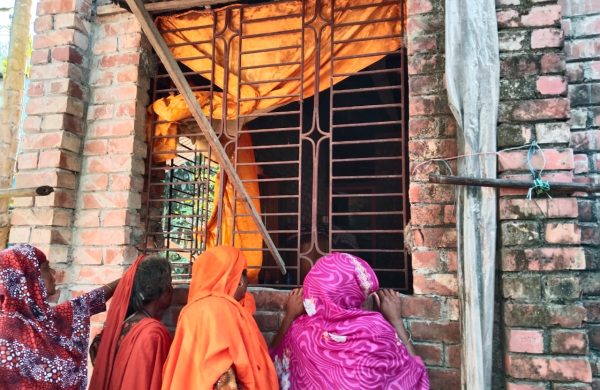Are we prepared to grab the new global opportunities?
- Update Time : Sunday, February 16, 2025

—Muhammad Omar Faruque—
As Bangladesh prepares to graduate from the Least Developed Country (LDC) category in November 2026, a pressing question looms: should the new government reconsider its strategy for this monumental transition?
It is important to recognise that this graduation is a collective leap forward for its people and businesses, who will be at the forefront of both the challenges and opportunities that come with this transition.
Bangladesh presents a sui generis case for two primary reasons. First, it is the largest LDC to graduate, with a population of 171 million. Second, according to a WTO study on the “Trade Impacts of LDC Graduation,” 90 percent of the graduation-related trade losses would be incurred by Bangladesh alone. It is estimated that graduation will result in a 14.28 percent decline in Bangladesh’s exports.
Bangladesh is set to graduate at a pivotal moment marked by unprecedented global and domestic instabilities. Serious questions are now being raised about the veracity of the development narrative upheld by the past regime of nearly two decades, which relied on questionable public statistics.
As critics argue that the decision to pursue LDC graduation was, to a large extent, politically motivated, and as part of the business community voices its resistance to this move, it is critical to qualitatively assess Bangladesh’s preparedness for sustainable LDC graduation. It must be taken into account that, for countless entrepreneurs, this is not merely a policy shift but a direct threat to the survival of their businesses, livelihoods, and the health of their communities.
Bangladesh should urgently establish a structured consultative mechanism to engage all key stakeholders—businesses, civil society, and experts—in deliberating the best course of action: whether to delay LDC graduation by a few more years after 2026 or to embrace it now.
If the consultative mechanism determines that Bangladesh should proceed with graduation, as generating “real” statistics within the stipulated time is practically challenging, the existing transition strategy, which began nearly a decade ago, can be revisited. A National Committee was formed in 2021 to assess the impacts and draft an action plan. The committee’s recommendations are currently under government review for final approval.
The recommendations of that committee should be highlighted, as they rightly suggest strategically navigating Bangladesh’s evolving status to capitalise on current and future opportunities. The approach is threefold. First, as an LDC, Bangladesh should actively advocate for the implementation of existing LDC-specific policy flexibilities. Second, Bangladesh must proactively push for the creation of multilateral rules to support sustainable graduation. Third, assuming its new status as a developing country, Bangladesh must prepare and act upon forward-looking strategies to seize emerging global opportunities.
By now, Bangladesh has made significant progress on the first two counts. Notably, it has played a leading role at the WTO, representing the LDC Group and ensuring that concerns surrounding LDC graduation receive due attention. In 2020, the LDC Group tabled a proposal requesting a 12-year extension of all LDC-specific trade support measures after graduation.
After intense discussions, WTO members partially adopted a few elements of this proposal by: i) encouraging preference-granting countries to provide “a smooth and sustainable transition period” for the withdrawal of preferences; ii) extending LDC-specific technical assistance for three years after graduation; and iii) maintaining the peace clause for dispute settlement for three years after graduation.
While these developments are steps in the right direction, they fall short of the original 12-year request, reflecting the systemic reluctance of some developed countries, particularly the US, to prolong LDC-specific flexibilities. As a result, Bangladesh must prepare for the reality of losing access to LDC-related benefits.
Bangladesh’s priority must now be building domestic institutions, strengthening negotiation capacity, and leveraging new economic opportunities. LDC graduation presents a chance for Bangladesh to rethink its development model and position itself as a competitive, sustainable, and digitally driven economy.
Trade will remain the cornerstone of Bangladesh’s integration into the global economy. To translate these opportunities into tangible benefits, Bangladesh must immediately implement a set of strategic action plans.
First, LDC graduation could make Bangladesh more attractive to foreign investors. However, this requires significant domestic legal and regulatory reforms. Outdated regulations, infrastructure gaps, and bureaucratic inefficiencies must be addressed to create a conducive investment climate. The demand for dedicated commercial courts continues to grow. The government must not only establish these courts in Dhaka and Chattogram as initially planned but also prioritise their creation in at least six divisional headquarters, followed by an expansion into every district.
Second, Bangladesh’s strategic location in the Asia-Pacific region offers immense potential for regional integration and connectivity. This region is growing rapidly and is home to over 200 regional and free trade agreements (FTA). Deeper economic integration with regional economies can diversify Bangladesh’s exports and enhance economic resilience. Bangladesh should actively pursue FTAs with key trading partners.
Third, LDC graduation should be viewed as an opportunity to embrace sustainable industrialisation. Bangladesh should capitalise on its comparative green advantages, such as eco-friendly jute products and renewable energy. A roadmap for green economic transformation must be developed to align with global sustainability goals and standards.
Fourth, Bangladesh holds immense potential in digital trade, particularly in digitally delivered services. The country has already emerged as a leader in freelance digital services. To scale up, Bangladesh must develop a regulatory framework that enables and facilitates cross-border e-commerce. To pursue this, the domestic e-commerce sector must be strengthened by developing a trust-based business model that follows global best practices.
Fifth, SMEs are vital contributors to GDP and employment. To mitigate the negative impacts of graduation, particularly in cross-border trade, targeted policies must be developed. These should include granting SMEs greater access to Export Processing Zones (EPZs), thereby facilitating their smoother integration into global supply chains and boosting their competitiveness on the international stage.
It is crucial to assess whether the existing reform commissions have adequately addressed these priorities. The proposed consultative mechanism should design and implement targeted measures to fully capitalise on the opportunities presented by LDC graduation.
—————————————
Muhammad Omar Faruque is a researcher in law. He can be reached at: [email protected].



















